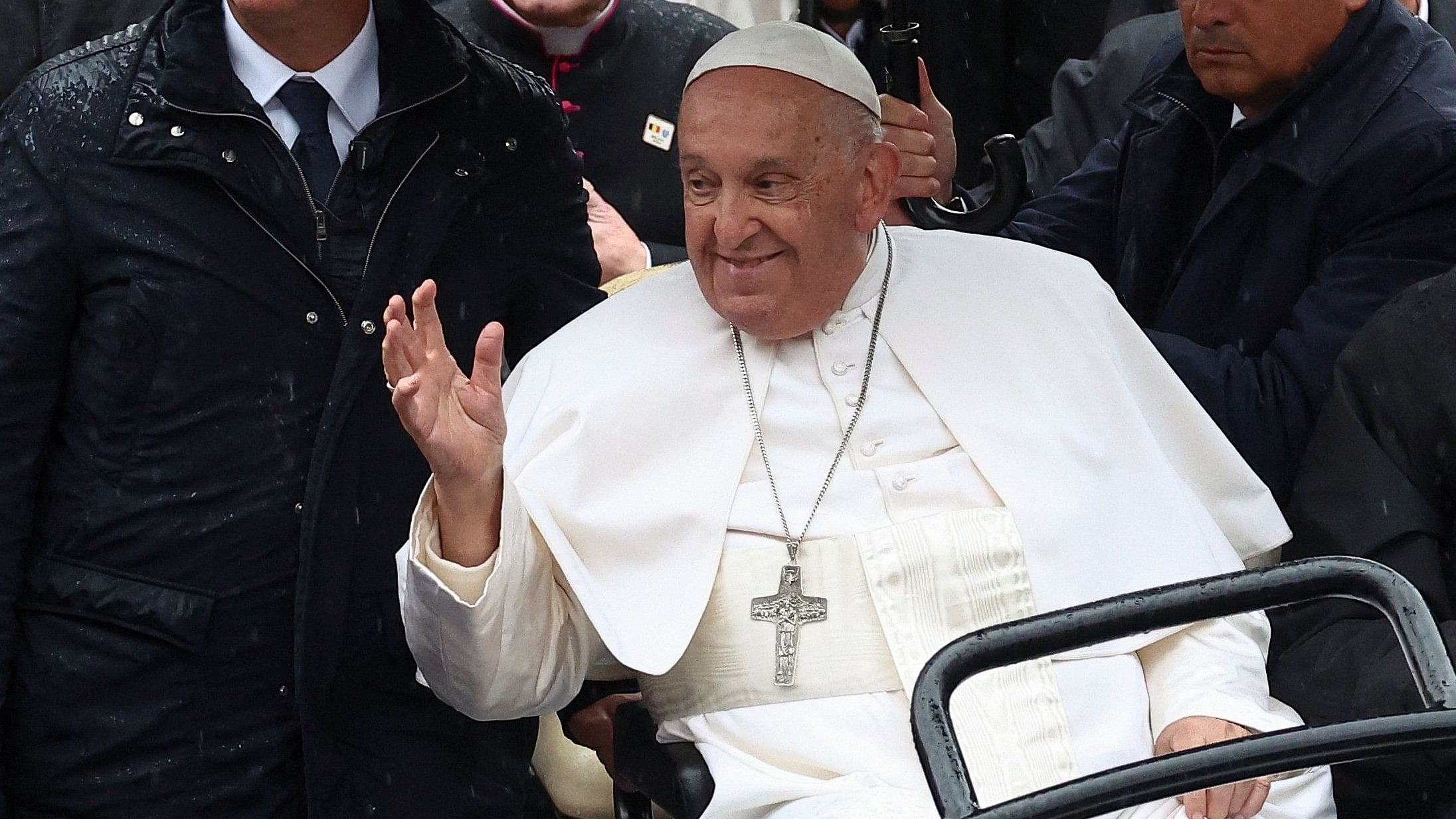
Pope Francis
Credit: Reuters Photo
Brussels: Pope Francis was pressed firmly by Belgium's king and premier on Friday for more concrete action to address sexual abuse by Roman Catholic clergy, an issue once more in the spotlight as he visits.
Both King Philippe and Prime Minister Alexander De Croo raised the issue in public in unusually forceful language for a papal foreign trip, always a carefully choreographed event.
Philippe told Francis in a speech welcoming him to Belgium that it had taken the Church "far too long" to address the scandals. De Croo said it had "a long way to go" and that "words alone are not enough".
"Concrete steps must also be taken," the premier said.
Francis' weekend trip to Belgium is meant to focus on the 600th anniversary of two Catholic universities. But a television documentary series and a parliamentary investigation have brought the Church's record on clerical sexual abuse to the fore.
The pope was also pressed on Friday to reconsider the Catholic Church's ban on ordaining women as priests.
More than 700 complaints and reports of clergy abuse have been made in Belgium since 2012, according to a Church report.
In the meeting on Friday with politicians at the royal Castle of Laeken in Brussels, Francis sought to give assurances that the global Roman Catholic Church was tackling the issue.
The 87-year-old pontiff did not name specific cases of abuse in Belgium but said the behaviour of Catholic clergy had provided "painful counter-testimonies" to the church's teachings.
"I refer to the tragic instances of child abuse, which is a scourge that the Church is addressing firmly and decisively ... by implementing a prevention programme throughout the world," the pope said.
In an addition to his prepared remarks, he said the Church must "be ashamed and ask forgiveness" for the abuse of minors, which he called a crime.
Belgian ex-bishop defrocked by Pope Francis
In March, Francis expelled former bishop of Bruges Roger Vangheluwe from the priesthood. Vangheluwe had resigned in 2010 after admitting abusing a nephew, and in 2011 admitted abusing another. The statute of limitations has prevented criminal prosecution.
The pope held a private meeting with 17 survivors of abuse later Friday at the Vatican's embassy in Brussels, where he is staying during his visit. The Vatican said the encounter lasted more than two hours, and that the pope listened to them and "expressed shame for what they suffered as children".
Francis has made addressing abuse by clergy a priority of his papacy, and created the first papal commission on the issue. He also installed a global system for Catholics to report suspicions of abuse or cover-ups by bishops.
But survivors' groups have questioned the effectiveness of the commission and also urged the pontiff to require all Catholic clergy to report suspicions of abuse to authorities.
Both the king and the prime minister also mentioned the Church's historic role in Belgium in forcing single mothers to give up their babies for adoption.
Under the pretence of being shielded from the stigma of illegitimacy, many babies were placed, with the help of Church-run social services, with devout Catholic families, echoing similar scandals in Ireland and Spain.
Demands have grown in Belgium for justice, formal apologies, and reparations from both the Church and the government for about 30,000 affected people.
Francis on Friday called the practice "the bitter fruit of wrongdoing and criminality".
University rector asks for women priests
Francis was confronted again on clergy abuse at an event later Friday at one of the Catholic universities celebrating their founding in the year 1425.
The rector of KU Leuven, which has nearly 65,000 students, told the pope the church is facing a "great challenge" to restore its moral authority.
Luc Sels, in an unusually frank address during a papal visit, especially at a Catholic university, also pushed Francis to allow women priests.
"Would the Church not be a warmer community if there was a prominent place for women, including in the priesthood?" he said.
The Catholic Church has an all-male clergy. The pope has created two commissions to consider whether women could serve as deacons, who, like priests, are ordained, but cannot celebrate the Mass.
Francis has not moved forward on the issue, and did not respond to Sels' question in remarks at the university.